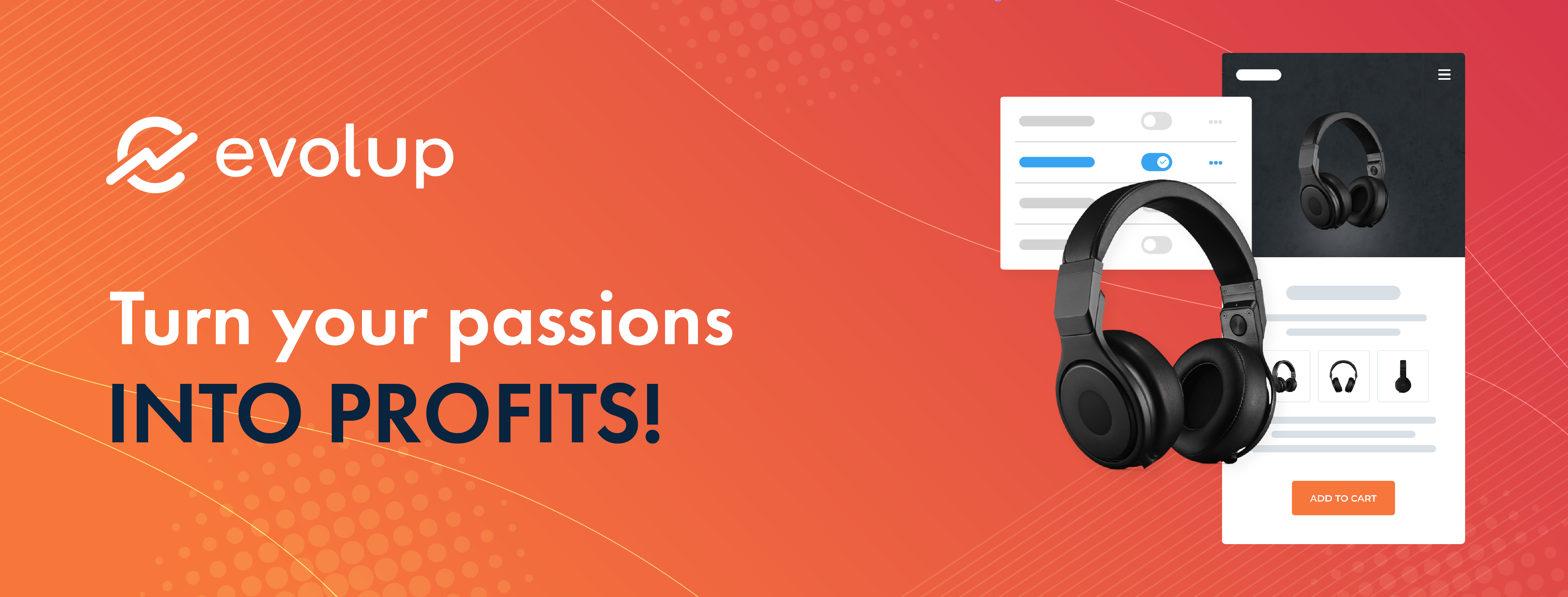In the dynamic realm of affiliate marketing, unlocking the true potential of your campaigns requires tapping into the right traffic sources. As digital landscapes evolve and user behaviors shift, understanding where to find receptive audiences is essential.
This comprehensive article delves into the crux of successful affiliate marketing by exploring the top paid and organic sources for driving valuable traffic to your offers. From harnessing the prowess of search engines and social media platforms to the subtlety of native ads and the influence of email marketing, we unravel the strategies that can elevate your affiliate endeavors to new heights!
What is a traffic source?
A traffic source refers to the origin or channel through which people arrive at an affiliate site, blog, landing page, social media page, or other online platform. It serves as the pathway through which individuals discover the website or promoted offer.
Analyzing these sources aids in comprehending user preferences, enabling a concentration on reinforcing successful tactics for sustained traffic. This data provides valuable insights into the target audience, facilitating the optimization of strategies for effective conversion.
While there are various traffic sources that exist, they fall into one of two categories, depending on the type of traffic they attract: paid or organic.
Paid
Paid traffic involves the purchasing of advertising space to drive visitors to a website or online platform. Paid traffic sources can be, for example, pay-per-click (PPC) ads on search engines or social networks, display ads, and sponsored content.
For affiliates, the advantages of paid traffic sources include rapid audience reach, precise targeting, and potential for quick conversions.
However, these methods require upfront investment, meticulous monitoring to prevent overspending, and a learning curve for effective campaign management. Success hinges on aligning your ad content with your ideal buyer’s interests to ensure optimal return on investment (ROI).
Organic (free)
Organic traffic refers to attracting visitors to a website through unpaid means like search engines, social media, or direct links. It results from the relevance and quality of a website's content, making it rank higher in search engine results pages.
When it comes to affiliate marketing, the benefits of organic traffic include sustainability, credibility, and cost-effectiveness, building trust with audiences over time.
However, organic or free traffic sources demand consistent content creation, SEO expertise, and patience for results. The competition for top rankings can be fierce, and algorithm changes may affect visibility, requiring adaptability in strategies.
What should you consider when choosing a traffic source?
Although it’d be great to be able to take advantage of all available traffic sources to increase your affiliate earnings, if you’re like most affiliates, your resources probably won’t allow this. To ensure that your strategy is as efficient as possible, there are several factors that you will want to consider when choosing which sources are best for your specific business.
- Cost: Selecting a traffic source that aligns with your budget ensures you can sustain your campaigns and generate profitable results. Overspending on expensive sources could diminish profits, while cost-effective options optimize returns on your affiliate efforts.
- Amount of traffic: The more traffic you can generate, the more likely you’ll be able to improve reach and exposure for your affiliate business. Opting for sources with substantial traffic ensures a broader audience for your promotions, enhancing your chances of attracting more potential customers and maximizing your affiliate conversions and earnings.
- Quality of traffic: High-quality traffic originates from consumers genuinely interested in what you’re promoting, leading to better engagement and higher conversion rates. Focusing on quality ensures that the visitors you attract are more likely to take the desired action, whether it's making a purchase or signing up.
- Advertising restrictions: Determining a source's restrictions beforehand will allow you to tailor your promotional strategies accordingly, ensuring that your affiliate efforts are compliant. This safeguards your reputation, maintains access to the chosen source, and contributes to a successful, ethical affiliate marketing approach.
- Ad targeting options: With advanced targeting tools, you can refine demographics, interests, behaviors, and more. Precise targeting enables you to reach the right group of consumers for your affiliate offers, increasing the likelihood of conversions.
- Your target audience and niche: Different sources cater to varying demographics and interests. Aligning your source with your audience ensures your promotions resonate with them, and understanding your niche aids in selecting platforms where your affiliate offers naturally fit, enhancing authenticity.
Best paid traffic sources for affiliate marketing
Mobile ads
Mobile ads appear on smartphones and tablets, capturing consumers' attention on the go. Mobile advertising can be advantageous for affiliates due to its ubiquitous reach and increasing mobile device usage worldwide.
With well-targeted campaigns, affiliates can tap into specific demographics and behaviors. Formats like in-app ads, mobile search, and social media ads facilitate direct engagement.
To leverage this strategy effectively, optimize your landing pages for mobile, create compelling visuals, and tailor content for mobile users, driving relevant traffic and conversions.
Paid search ads
With paid search ads, you promote your affiliate website directly through search engines, like Google, Bing, and Yahoo, only incurring costs when your ad is clicked. You bid on relevant keywords, ensuring that your ads are displayed to interested users actively seeking related goods or services.
This generates traffic from people searching popular keywords in your particular corner of the market. With this strategy, it’s crucial that you conduct thorough keyword research, create compelling ad copy, and direct users to well-optimized landing pages to increase your chances of targeted traffic and potential conversions.
Video ads
Video ads can be quite beneficial for affiliates thanks to their engaging and shareable nature. Videos convey information effectively and captivate audiences, fostering trust and connection. Create educational, entertaining, or promotional videos related to your offers, sharing them on platforms like YouTube, TikTok, and other networks.
Don’t forget to optimize your video titles, descriptions, and tags to improve discoverability. In addition, incorporate calls-to-action (CTAs) and affiliate links in video descriptions to better direct viewers to products, boosting traffic and potential conversions.
Push notifications
Push notifications are brief messages sent to users' devices, providing real-time updates, alerts, or promotions from apps or websites. They can be effective in affiliate marketing, as they capture recipients’ attention instantly and can drive traffic to relevant offers.
You can take advantage of opt-in lists to target engaged audiences, promoting time-sensitive deals or new products. Crafting compelling, concise messages with clear CTAs is essential. Keep in mind, though, that the frequency and relevance of the push notifications you send are crucial to avoid user annoyance.
Banner ads
With this kind of advertising, a clickable banner is placed on websites or within posts on socials. These visual ads, when strategically placed on high-traffic websites or relevant platforms, attract user attention and drive clicks.
Creating an attention-grabbing banner ad involves combining compelling images and concise, direct text for maximum impact. However, oversaturation or poor design can lead to “banner blindness,” with viewers ignoring this ad format.
Popup ads
Popup ads, new windows that appear on top of a site page, can serve as a valuable means of generating traffic for affiliates due to their immediate attention-grabbing nature. When you time popup ads well, they can effectively promote your offerings and engage visitors.
As with other types of advertising, though, balancing frequency and user experience is crucial to avoid annoyance. Implementing exit-intent popups or timed triggers can optimize their effectiveness, directing potential customers to affiliate offers.
Native ads
Native ads offer affiliates an effective traffic source by blending seamlessly with the platform's content, making them less intrusive and more engaging to the audience. This in turn can boost click-through rates and conversions.
By tailoring the ad's appearance and message to match the platform's style and your audience's preferences, you can establish a stronger connection. Because native ads offer a non-disruptive experience, they’re often accompanied by better user engagement compared to, say, banner or popup ads.
Social media ads
Another advertising method to consider for your affiliate marketing venture is to take advantage of paid ads on social networks that are applicable to the shoppers you’re hoping to attract.
Promoting your offerings via, for example, Facebook Ads, Instagram Ads, TikTok Advertising, or promoted tweets with captivating visuals and persuasive copy can effectively draw traffic, generating a greater possibility of conversions for your offerings.
Sharing compelling ad content, such as product showcases, reviews, or tutorials, engages users and encourages clicks. What’s more, with precise demographic and interest-based targeting options, you’ll be able to more easily reach your target market.
URL shortening tools
URL shortening tools are online services that condense long URLs into shorter, more manageable links. They’re convenient for sharing on platforms with character limits, like social networks. Customizable branded short domains can also add professionalism.
For affiliates, shortened URLs offer cleaner, more attractive links, increasing click-through rates. In addition, some URL shortening tools provide analytics, helping affiliates track link performance and optimize strategies.
Influencer marketing
Influencer marketing involves collaborating with individuals who possess a significant following and influence within a specific niche. These influencers create content that promotes products or services to their engaged audience.
In affiliate marketing, partnering with relevant influencers can provide access to a highly targeted and receptive group of consumers. Influencers' endorsements lend credibility, fostering trust and interest in the promoted offers.
Best organic traffic sources for affiliate marketing
Search engine optimization (SEO)
SEO entails optimizing your affiliate website in order to improve its visibility on sites like Google and attract organic traffic.
To boost your SEO in affiliate marketing, focus on keyword research to target phrases relevant to your affiliate offers. Create high-quality, informative content that addresses consumers' needs. Don’t forget to also optimize on-page elements like titles, meta descriptions, and headers.
In addition, it’s advantageous to work on building authoritative backlinks from reputable websites. You’ll also want to regularly update your content and monitor performance using analytics tools to ensure sustainable and targeted traffic flow to your affiliate links.
Did you know that when you create a website for affiliate marketing on Evolup, you won’t have to worry about any of the technical aspects of SEO? Yep, the solution’s 50+ SEO optimizations manage this element for you, which means that you’ll be able to concentrate on other aspects of your business!
What’s more, Evolup gives you complete freedom, as it’s compatible with all affiliate programs, allowing you to advertise the items that you’re most excited about. The platform’s plethora of pre-integrated tools, including powerful artificial intelligence, make content creation a breeze and increase conversions.
Sign up to start making money from your passions and enjoy a 7-day free trial with Evoup today!
Blogging
Part of a well-constructed SEO strategy, blogging is a free yet powerful way to encourage people to visit your affiliate website, as it provides a space to share valuable content related to the items you wish to advertise.
Engaging, informative blog posts attract organic traffic and establish expertise in your field. To optimize this strategy, conduct keyword research to target relevant search queries.
For each blog post, aim to consistently create high-quality, reader-friendly content that educates and addresses the needs of those in your target market. Incorporate affiliate links naturally within your content. To boost your blog’s visibility, you can promote posts through social media and engage with readers to foster a loyal audience, driving steady traffic to your affiliate links.
Email marketing
Email marketing can be a very powerful way to generate affiliate traffic because it allows for direct engagement with a targeted audience. Begin by building a quality email list through sign-up forms on your website.
Then, craft engaging, personalized emails that supply value, such as product recommendations, promotions, or informative content. Be sure to include CTAs that make it clear what action you wish subscribers to take, leading them to your affiliate links.
Consider segmenting your subscriber list for more tailored messaging, and don’t hesitate to regularly analyze performance metrics, refining your strategies based on user engagement and conversion data.
Social media marketing
Although we already mentioned social media earlier in the list of paid traffic sources, it can also be a worthwhile free strategy for driving traffic for affiliates. Creating a consistent, engaging presence on various networks can help attract visitors to your site organically.
Similar to if you opt to avail of paid ads on social networks, it’s crucial to select the right platforms, meaning the platforms where your ideal buyer is likely to be!
Share engaging content, such as product reviews, tutorials, or tips, that resonate with your target market. Interact with followers via comments, messages, reactions, etc. and use relevant hashtags to expand your reach. Remember to always be transparent with any links you post and share, disclosing when it’s an affiliate link, which is one of the top affiliate marketing tips to help build trust with consumers.
Online forums
Online forums like Reddit are where groups of like-minded people come together to talk about related topics, also giving you an opportunity to get the word out about your affiliate products or services and encourage visitors to your site.
That being said, be careful to not get too promotional in your interactions and content you post on forums. Your focus should instead be on increasing credibility and trust, which will then help to boost consumer confidence in your recommendations when they’re ready to make a purchase.
Find forums that are relevant to your niche and participate by responding to questions, getting involved in discussions, and supplying valuable insights. Then, when applicable, you can add your affiliate links to content periodically.






